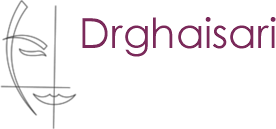Cheek Augmentation Dubai, UAE
High, prominent cheekbones are one of the facial features most frequently associated with beauty. Today, this underlying facial structure can be created with implants.
Whether you want heightened and well-formed cheekbones like the ones you had when you were young, or you’ve never had well-defined cheekbones, cheek implants may produce a dramatic change. For many people, Cheek Augmentation can provide new facial contours and dimensions to bring facial features into better balance.
Cheek implants are made in various shapes and sizes. They are made out of both solid and semi-solid materials that have been used successfully for years. If you’re considering cheek implants, the following information will provide you with a good introduction to the procedure. For more detailed information about how this procedure may help you, we recommend that you consult a facial surgeon who is board certified or has completed a residency program that includes training in cheek implant procedures.
What are some of the most common benefits of Cheek Augmentation?
This surgery can enhance facial contours and brings balance to the facial features. It is also used to correct asymmetries and congenital defects.
What will happen at the initial consultation?
During the consultation, you and your surgeon will discuss the changes that you would like to make in your appearance. He/she will explain the different options available to you, the procedure itself, and its risks and limitations. You may also be able to view samples of implants and feel the differences in shape, size and consistency. He/she will also explain the kind of anesthesia required, surgical facility, and costs. Be sure to ask all the questions you have about the surgery, and ask to see photos of the doctor’s recent patients, before and after surgery. Also ask for, and follow up on, patient references. Learning everything you can about your options, risks and benefits is the key to making an informed decision. See Questions to ask your doctor below.

How is the procedure performed in Cheek Implant Surgery?
When cheek implant surgery is performed in conjunction with other facial procedures, the implants may be inserted through the incisions used for that procedure. If cheek implant surgery is performed by itself, incisions are either made at the top of the upper lip, near the gums, or on the outer cheek, slightly below the lower eyelid. The implant of the size and shape that the surgeon has selected is then inserted through these incisions into a pocket created in the tissue. In some cases, a small titanium screw is used to attach the implant and the bone. The implants are placed on or below the cheekbones and the incisions are closed with sutures that the body absorbs. At the conclusion of the surgery the skin is dressed to reduce swelling.
How long does the Cheek Augmentation procedure take?
The surgery generally takes from 30 to 45 minutes.
Will I need to stay in a hospital?
This procedure is generally performed on an outpatient basis. A hospital stay is sometimes necessary when cheek implant surgery is performed in conjunction with other cosmetic procedures.
How much pain is there in Cheek Augmentation?
The amount of pain depends on the method used, and varies from person to person. Local anesthetic is used to reduce pain during the surgery.
What can I expect after surgery?
The treated area may feel tight, swollen and uncomfortable in the days following the surgery. Pain medication may be used to lessen discomfort. Movement of the mouth may initially be difficult. Your surgeon should give you information on post-operative care, including limits on physical activities and diet. If incisions are made inside the mouth, you may be placed on a liquid diet for several days until there is adequate healing to allow for chewing and food particles to come in contact with the stitches.
What is the recovery period like?
Stitches in the mouth dissolve in approximately 10 days. Swelling also subsides quickly, but this varies, particularly if cheek implants were performed in conjunction with another surgery.
What is the long-term outcome like for most people?
Due to swelling, the results of the surgery may not be plainly visible for as long as three or four months. Scars are generally well hidden.
Ideal Candidate for Cheek Augmentation:
In general, the best candidates for cheek augmentation are people:
- In good physical health
- Psychologically stable
- Wanting to add definition to the face, especially the upper face
- Understanding the healing process
- Understanding the limitations of the procedure
- No known allergies to the implant material used
- Having realistic expectations for the outcome
The above is only a partial list of the criteria that your surgeon will consider in determining whether or not this procedure is appropriate for you. Be sure to ask your surgeon if he / she considers you an ideal candidate for cheek implants.
Other Important Information:
Cheek implant surgery is often performed in conjunction with a facelift. Chin augmentation is another procedure used to balance the face.
Questions to Ask Your Doctor:
- Are the desired results I described realistic?
- Where is the surgery performed? How long will the procedure take?
- Am I good candidate for cheek implants? Why or why not?
- What kind of anesthesia is used?
- How much does it cost?
- What is your experience in performing this procedure? (How long has he/she performed this procedure, and how many he/she has performed in the past year?)
- What percentage of patients have had significant complications? (The physician should disclose this information to you.)
- Will you repeat or correct procedures if it does not meet agreed upon goals? And if the procedure must be repeated / corrected, will I be charged again? (The physician should provide you with his/her policy on this issue.)
- May I see “before and after” photos of recent patients? The physician should provide many photos of recent patients.
- May I have the names and contact information for several recent cheek implant patients? (Follow up to get first-hand information on the procedure and the surgeon.)
- Could I observe the exact procedure I am considering before I decide to have the surgery? (Either on videotape or ask to view one in real life.)
- What should I expect post-operatively, in terms of soreness, what to watch for, medication, bathing, and level of activity?
- Who will be assisting during the surgery? What are their qualifications? (Does the plastic surgeon perform the entire surgery?)
- Have you ever had your malpractice insurance coverage denied, revoked, suspended?
- Do you offer patient financing?
Be Sure To:
- Tell your doctor about any allergies you have (to foods, drugs, environmental elements)
- Tell your doctor if you have any of the following pre-existing conditions:
- thyroid problems such as hypothyroidism
- insufficient tear production or dryness of the eye
- elevated blood pressure or other circulatory disorders
- cardiovascular disease
- diabetes
- ophthalmic problems
- any other serious medical condition(s)
- Tell your doctor about all medications you are taking (both prescription and non-prescription)
- Carefully follow any instructions your surgeon gives you regarding eating and drinking, smoking, and vitamins.
- Avoid aspirin and aspirin-containing medicines for two weeks prior to surgery.
The information on this web site is only intended as an introduction to this procedure and should not be used to determine whether you will have the procedure performed nor as a guarantee of the result. The best method of determining your options is to consult qualified surgeons who are able to answer specific questions related to your situation.
